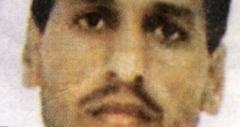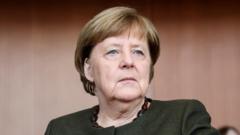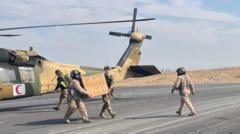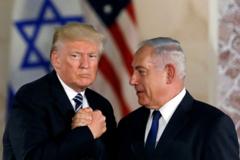Joseph Aoun, the army chief, has been elected as Lebanon's president, marking the end of a prolonged power vacuum that lasted more than two years. Aoun, clothed in a suit and tie rather than military garb, was elected by parliament with backing from several major political factions, as well as international allies like the US, France, and Saudi Arabia.
Lebanon Elects Army Chief Joseph Aoun as New President, Ending Political Deadlock
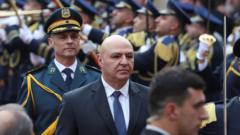
Lebanon Elects Army Chief Joseph Aoun as New President, Ending Political Deadlock
In a significant political turnaround, Joseph Aoun takes office as Lebanon's president, following over two years of stalemate.
The consensus around Aoun's candidacy grew following the withdrawal of a rival candidate endorsed by Hezbollah, allowing for a united front. This election comes on the heels of a recently agreed ceasefire between Israel and Hezbollah, which substantially impacted the dynamics within Lebanon.
In his inaugural speech, Aoun emphasized that a "new phase in Lebanon's history" has begun, detailing his commitment to ensuring that the state retains the sole authority to wield arms, a pointed reference to Hezbollah's military power. He outlined ambitious plans to address the devastation from recent conflicts, estimating recovery costs at $8.5 billion, and highlighted the need for substantial political and economic reforms to steer the stricken nation out of crisis.
While the presidency in Lebanon is largely a symbolic position, Aoun's role includes signing laws and proposing a prime minister for parliamentary approval. Lebanon has struggled to form a functional government since the last parliamentary elections in May 2022, amid a dire socio-economic landscape.
As Lebanese citizens celebrated Aoun's election with hopes for stability, international observers expressed optimism about the potential for political rejuvenation. UN representatives and global leaders, including French President Emmanuel Macron, underscored the importance of Aoun's election as a critical step toward restoring institutional functionality in Lebanon. Aoun's administration faces monumental tasks ahead, with calls for the rapid appointment of a prime minister and a renewed governmental framework to address the pressing challenges facing the country.
In his inaugural speech, Aoun emphasized that a "new phase in Lebanon's history" has begun, detailing his commitment to ensuring that the state retains the sole authority to wield arms, a pointed reference to Hezbollah's military power. He outlined ambitious plans to address the devastation from recent conflicts, estimating recovery costs at $8.5 billion, and highlighted the need for substantial political and economic reforms to steer the stricken nation out of crisis.
While the presidency in Lebanon is largely a symbolic position, Aoun's role includes signing laws and proposing a prime minister for parliamentary approval. Lebanon has struggled to form a functional government since the last parliamentary elections in May 2022, amid a dire socio-economic landscape.
As Lebanese citizens celebrated Aoun's election with hopes for stability, international observers expressed optimism about the potential for political rejuvenation. UN representatives and global leaders, including French President Emmanuel Macron, underscored the importance of Aoun's election as a critical step toward restoring institutional functionality in Lebanon. Aoun's administration faces monumental tasks ahead, with calls for the rapid appointment of a prime minister and a renewed governmental framework to address the pressing challenges facing the country.








